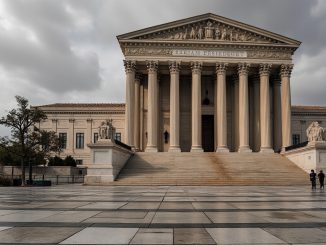Gary Gensler, the current Chair of the U.S. Securities and Exchange Commission (SEC), has announced his intention to step down from his position on January 20, coinciding with the inauguration of President-elect Donald Trump. This move clears the path for Trump to appoint a new SEC Chair, likely someone perceived as more favorable towards Wall Street and the burgeoning cryptocurrency sector.
Under Gensler’s leadership since his appointment in 2021, the SEC has taken a notably aggressive stance on several regulatory fronts, particularly in the realm of cryptocurrencies. Gensler’s approach has involved high-profile legal battles and enforcement actions, including a significant case with Grayscale Investments over the rejection of its application to convert its Bitcoin Trust into an ETF. Despite initial resistance, Grayscale prevailed in court, prompting the SEC to approve Bitcoin spot ETFs, which have since attracted billions in investments. In recent years, the SEC has also taken legal action against several major digital asset companies over their handling and sale of cryptocurrencies.
The announcement of Gensler’s departure has sparked speculation about who might take his place. While President-elect Trump has not yet revealed his choice, expectations are high that the next SEC Chair will echo Trump’s more crypto-friendly rhetoric. This potential shift in regulatory leadership could signal a change in policy direction, possibly leading to a more relaxed regulatory environment for financial markets, especially in areas like digital currencies where Trump has expressed a supportive stance.
The SEC’s commissioners serve five-year terms, which meant Gensler could have remained in his role until at least 2026. However, his decision to resign aligns with historical precedent where SEC Chairs often step down when there is a change in administration, particularly if the incoming president has a different political agenda. This transition not only marks a significant change in leadership but also reflects the influence of political shifts on regulatory policies in the United States.
The resignation of Gensler is anticipated to have wide-reaching implications. For investors and market participants, particularly in the cryptocurrency space, this could mean a temporary period of regulatory uncertainty or, conversely, an opportunity for policy reform. Industry insiders and observers will be closely watching the nomination process, as the new chair’s stance on regulation could dramatically affect market dynamics, investor confidence, and the development of new financial technologies.
The transition at the SEC also comes at a time when the financial markets are navigating through complex issues like digital asset regulation, which has been a contentious topic under Gensler’s tenure. The crypto industry, which has often felt at odds with Gensler’s regulatory tactics, might see this as a chance for a reset in how digital assets are regulated.
As the SEC prepares for new leadership, the focus will be on how the agency will balance innovation with investor protection, maintaining market integrity while fostering an environment conducive to technological advancement in finance.
- Bulenox: Get 45% to 91% OFF ... Use Discount Code: UNO
- Risk Our Money Not Yours | Get 50% to 90% OFF ... Use Discount Code: MMBVBKSM
Disclaimer: This page contains affiliate links. If you choose to make a purchase after clicking a link, we may receive a commission at no additional cost to you. Thank you for your support!



Leave a Reply